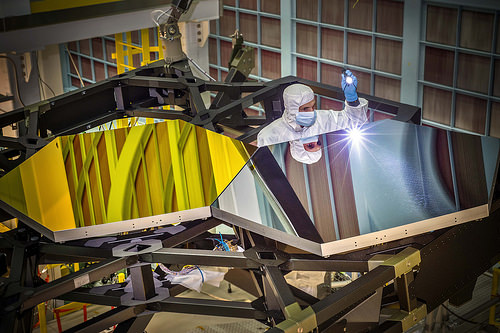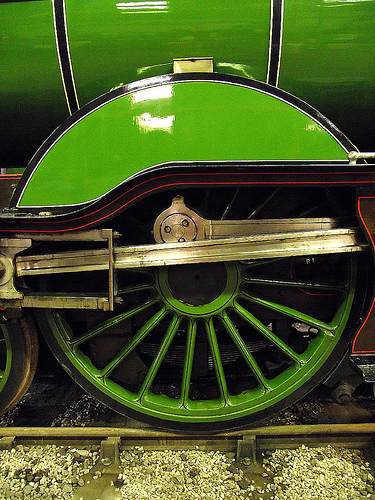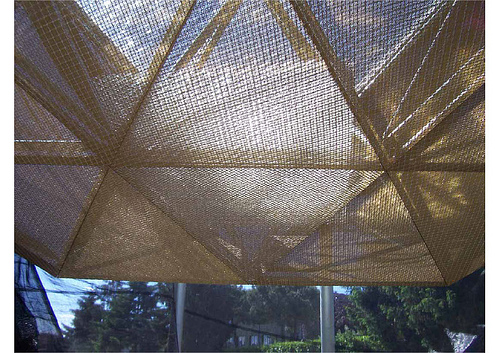Check out these prototype engineering pictures:
Silver and Gold

Image by NASA Goddard Photo and Video
Inside NASA’s Goddard Space Flight Center’s giant clean area in Greenbelt, Md., JWST Optical Engineer Larkin Carey from Ball Aerospace, examines two test mirror segments recently placed on a black composite structure. This black composite structure is referred to as the James Webb Space Telescope’s “Pathfinder” and acts as a spine supporting the telescope’s principal mirror segments. The Pathfinder is a non-flight prototype.
The mirrors had been placed on Pathfinder employing a robotic arm move that involved hugely trained engineers and technicians from Exelis, Northrop Grumman and NASA.
"Getting this right is crucial to proving we are prepared to commence assembling the flight mirrors onto the flight structure next summer season," stated Lee Feinberg, NASA’s Optical Telescope Element Manager at NASA Goddard. "This is the first space telescope that has ever been built with a light-weighted segmented main mirror, so studying how to do this is a groundbreaking capability for not only the Webb telescope but for potential future space telescopes."
The James Webb Space Telescope is the successor to NASA’s Hubble Space Telescope. It will be the most strong space telescope ever built. Webb is an international project led by NASA with its partners, the European Space Agency and the Canadian Space Agency.
For much more info about the Webb telescope, go to: www.jwst.nasa.gov or www.nasa.gov/webb
Credit: NASA/Chris Gunn
NASA image use policy.
NASA Goddard Space Flight Center enables NASA’s mission by means of four scientific endeavors: Earth Science, Heliophysics, Solar Method Exploration, and Astrophysics. Goddard plays a major function in NASA’s accomplishments by contributing compelling scientific understanding to advance the Agency’s mission.
Adhere to us on Twitter
Like us on Facebook
Locate us on Instagram
Ivatt tiny Atlantic 990, Henry Oakley

Image by Snapshooter46
The Wonderful Northern Railway Small Boiler Class C1. The first four-four-two (Atlantic) sort in Fantastic Britain. Created by Henry Ivatt in 1897, 22 have been built among 1898 and 1903 at Doncaster Works. It was outshopped a couple of month’s ahead of Aspinall’s prototype Atlantic for the Lancashire & Yorkshire Railway.
Prototype

Image by Hugh Dutton Associés
Louvre Islamic Arts Museum – Paris, France
HDA : Technical design and style & Engineering
Client : Etablissement Public du Musée du Louvre
Architect: Mario Bellini & Rudy Ricciotti
Date : 2006 – 2012
See more at : www.hda-paris.com/